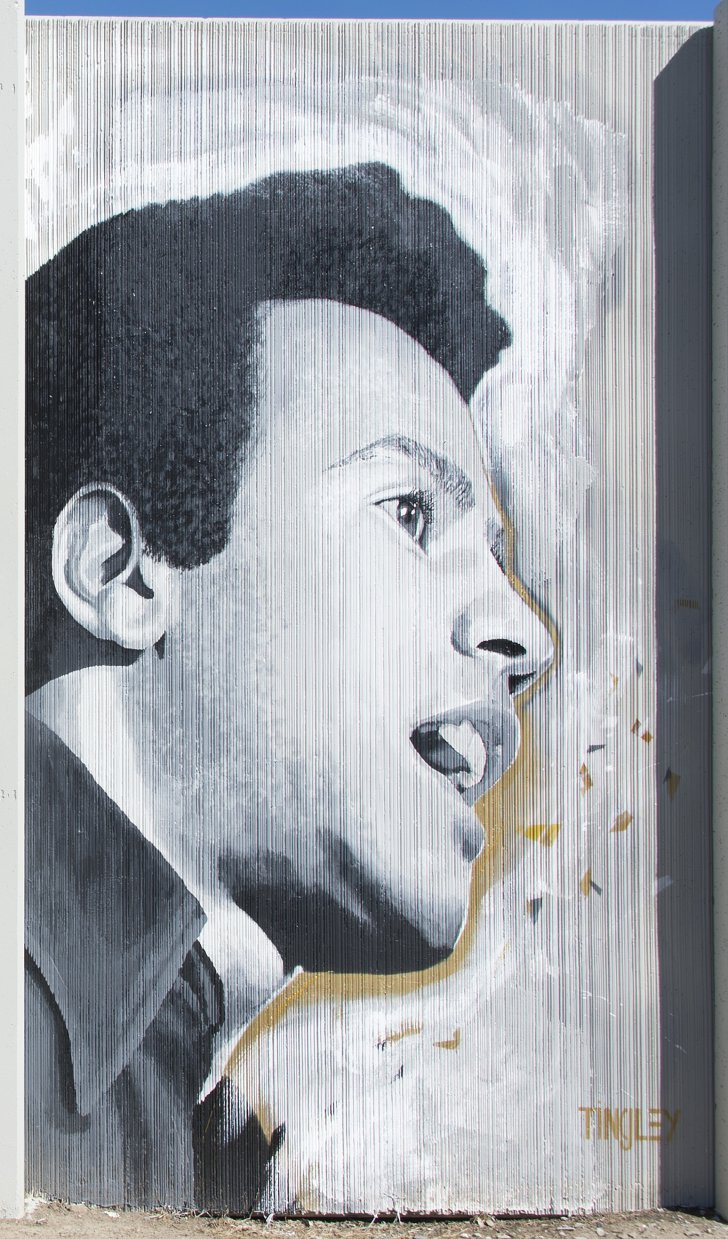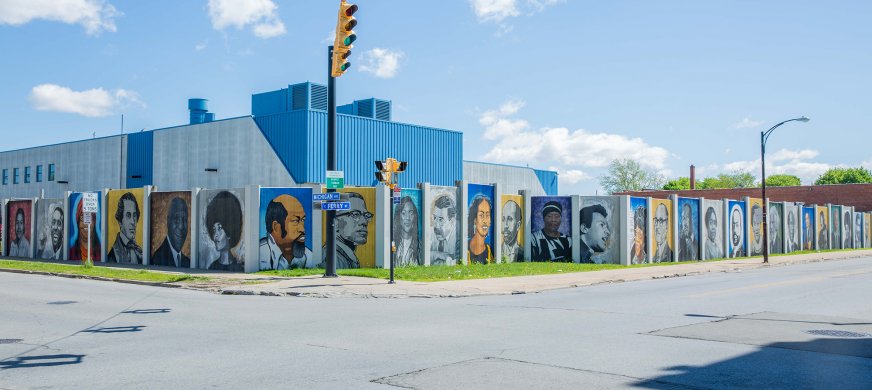Huey P. Newton

Chuck Tingley’s portrait of Huey P. Newton for The Freedom Wall, 2017. Photograph by Tom Loonan.
As a cofounder and leader of the Black Panthers, Huey P. Newton was a powerful voice for militant revolution in the name of freedom and justice during the 1960s. While attending Merritt College in Oakland, California, Newton became involved in the study of Third World theorists promoted by the black students association as well as the practical politics of Oakland’s largely segregated African American community. For Newton and many younger African Americans, the major strides toward ending legal discrimination made by the mid-1960s seemed to have little effect on the racism, economic injustice, and police brutality they and their neighbors regularly experienced. In 1966, Newton and Bobby Seale translated this frustration in the platform of the Black Panther Party, which advocated for armed self-defense and, in a major break with the mainstream Civil Rights movement, allowed for the use of violence for revolutionary ends.
While the Panthers’ unapologetic pursuit of “Power to the People” quickly drew many recruits to the organization, it also provoked a violent crackdown by local police and federal agents. In 1967, Newton was charged with killing a police officer during a gun battle in Oakland. Although he was initially convicted, his imprisonment became a rallying point for activists—“Free Huey” rallies were held around the world—and the charges were overturned in 1970. After his release from prison, Newton attempted to redirect the Panthers’ energies toward positive action in the community, including the development of breakfast programs for children and free medical clinics. However, he continued to have run-ins with the law, at one point spending three years in Cuba to avoid arrest, and was killed in a street shooting in 1989.
